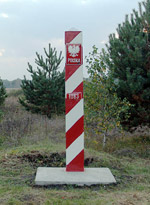Last week, Russia closed the Higher Lars supervisory-passing point-the only one recognized on the Russian-Georgian intergovernmental border. The unexpected closing, which was due to the current reconstruction, has already caused some problems because there are over 100 cars piled up at the Higher Lars point and nearly 150 people are waiting to get permission to cross the Russian border. Only governor of the border region of Mtskhet-Tianet Vasili Maglateridze tried to get some information.
“During a personal conversation with the Russian border-watchers, I found out that the border would be closed for the next four months and officially two-weeks. They still had to warn us. The residents living near the border, who had no difficulty in crossing the border without a pass, are now facing problems.”
There are even more problems for Armenia. Armenia was using that road to export vegetables to Russia. That’s exactly what Prime Minister of Georgia Zurab Noghaideli touched upon during the Armenian-Georgian business conference held in Batum recently.
“On a large scale, the closing of the land area is not that essential for Georgia because we don’t really need to exchange the cargo from Russia from the economic perspective. But we can’t say the same for Armenia,” said Noghaideli.
Armenian Prime Minister Andranik Markaryan was a little more worried when answering journalists’ questions.
“The closing was a huge blow to village producers. Georgia has already thought about alternatives to the road leading to Russia. I’m talking about the Georgian Poti harbor and Novorosiyski. But I hope that the border will open soon,” said Markaryan.
However, Markaryan’s optimism may not be reasonable. Russia has taught Armenia that it can be obscene in politics, not excluding those countries which it considers strategic allies. In this case I mean Armenia. So, judging from all this, the opening of the border has turned into “Russia’s personal business.”
Tbilisi wasn’t able to find out the official reasons for closing the Higher Lars supervisory-passing point, when it will start working and when there will be a road leading to Russia. Deputy Minister of Foreign Affairs of Georgia Merab Antadze had this to say during an exclusive briefing:
“Despite the efforts of the ministry workers and my tries, we weren’t able to get the answers to our questions from the Russian Ministry of Foreign Affairs.”
According to him, in any case, Russia has not fulfilled the requirements of the intergovernmental agreement stating that each side is supposed to warn the other in times like these. Russia has also gone against all international rules of etiquette.
“I think it’s quite possible that we will be getting unexpected feedback from Moscow regarding the recent visit of the Georgian president to the U.S.,” said Antadze.
If so, then let’s go even deeper-on his last day in the U.S., the Georgian president couldn’t resist himself and made a statement to Moscow, saying that there is a lot of modern technical equipment and weaponry being transferred to the former military base in Gudauti, which was eliminated based on the Istanbul agreement to shorten military bases. Perhaps this was what could have made Moscow get out of had, and not Sahakashvili’s visit to the U.S.

